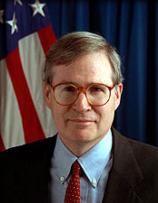A Quote by Michael Mullen
When I go there to Afghanistan or Pakistan, the question both asked - and if it's not asked, implied - is, 'Are you staying this time?' because we left last time, in 1989 in Afghanistan, and we sanctioned Pakistan from 1990 to 2002. So I think it's a fair question.
Related Quotes
Pakistan is alarmed by the rising Indian influence in Afghanistan, and fears that an Afghanistan cleansed of the Taliban would be an Indian client state, thus sandwiching Pakistan between two hostile countries. The paranoia of Pakistan about India's supposed dark machinations should never be underestimated.
Three American presidents-Dwight D. Eisenhower, John F. Kennedy, and Lyndon B. Johnson-have asked the question: What do we get from aiding Pakistan? Five-Jimmy Carter, George H. W. Bush, Bill Clinton, George W. Bush, and Barack Obama-have wondered aloud whether Pakistan's leaders can be trusted to keep their word.
Some Pakistanis fought for the Taliban. Pakistani extremist groups provided infrastructural support to Al Qaeda. There was a coming and going of Al Qaeda militants and leaders between Afghanistan and Pakistan for several years. All that has really happened is that Al Qaeda has escaped from Afghanistan come into Pakistan, got in touch with their contacts and friends in these extremist groups, which then provided them with safe houses, cars, and not just in the border areas but also in the cities. Rooting out Al Qaeda in Pakistan now is where the main battle is being fought.
I think - I think the real nightmare place now is less Afghanistan than it is Pakistan. I mean, again, Pakistan is this gigantic country, deeply troubled, kind of almost ungovernable, sitting on top of probably 50 or 60 nuclear warheads. Nobody really knows where the warheads are; the Americans certainly don't know where they are.
At some point, deliberation begins to look more like indecisiveness which then becomes a way of emboldening our enemies and allies and causing our allies to question our resolve. So we shouldn't let one component of this determine our national security here which depends on providing an Afghanistan which denies a safe haven to terrorists as well as stabilizing Pakistan. Those are our two national security interests at stake in Afghanistan.
Obviously Pakistan and the U.S. are very different countries, but we have common geopolitical interests in preventing communist take over in Afghanistan and hence, now that Pakistan has a government that we can cooperate with, even though it is a military government, we are working together with them in order to promote our common interests. But obviously we also differ with Pakistan on a number of issues.
No one from the intelligence community, anyplace else ever came in and said, ‘What if Saddam is doing all this deception because he actually got rid of the WMD and he doesn't want the Iranians to know?' Now somebody should have asked that question. I should have asked that question. Nobody did. Turns out that was the most important question in terms of the intelligence failure that never got asked.





































